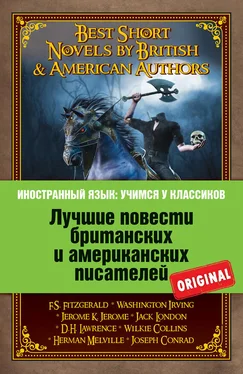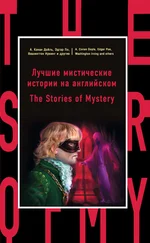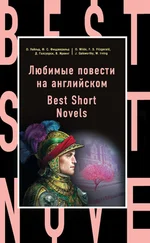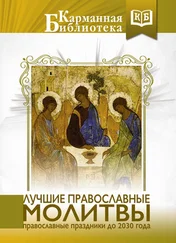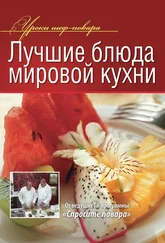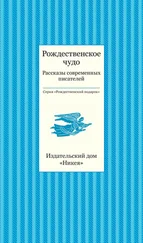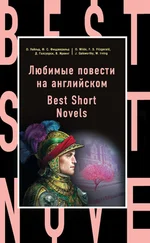The Third Narrative
The Story Continued by Percy Fairbank
We took leave of Francis Raven at the door of Farleigh Hall, with the understanding that he might expect to hear from us again.
The same night Mrs. Fairbank and I had а discussion in the sanctuary of our own room. The topic was ‘The Hostler’s Story’; and the question in dispute between us turned on the measure of charitable duty that we owed to the hostler himself.
The view I took of the man’s narrative was of the purely matter-of-fact kind. Francis Raven had, in my opinion, brooded over the misty connection between his strange dream and his vile wife, until his mind was in а state of partial delusionon that subject. I was quite willing to help him with а trifle of money, and to recommend him to the kindness of my lawyer, if he was really in any danger and wanted advice. There my idea of my duty toward this afflicted person began and ended.
Confronted with this sensible view of the matter, Mrs. Fairbank’s romantic temperament rushed, as usual, into extremes. ‘I should no more think of losing sight of Francis Raven when his next birthday comes round,’ says my wife, ‘than I should think of laying down а good story with the last chapters unread. I am positively determined, Percy, to take him back with us when we return to France, in the capacity of groom. What does one man more or less among the horses matter to people as rich as we are?’ In this strain the partner of my joys and sorrows ran on, perfectly impenetrable to everything that I could say on the side of common sense. Need I tell my married brethren how it ended? Of course I allowed my wife to irritate me, and spoke to her sharply.
Of course my wife turned her face away indignantly on the conjugal pillow, and burst into tears. Of course upon that, ‘Mr.’ made his excuses, and ‘Mrs.’ had her own way.
Before the week was out we rode over to Underbridge, and duly offered to Francis Raven а place in our service as supernumerary groom.
At first the poor fellow seemed hardly able to realize his own extraordinary good fortune. Recovering himself, he expressed his gratitude modestly and becomingly. Mrs. Fairbank’s ready sympathies overflowed, as usual, at her lips. She talked to him about our home in France, as if the worn, gray-headed hostler had been а child. ‘Such а dear old house, Francis; and such pretty gardens! Stables! Stables ten times as big as your stables here – quite а choice of rooms for you. You must learn the name of our house – Maison Rouge. Our nearest town is Metz. We are within а walk of the beautiful River Moselle. And when we want а change we have only to take the railway to the frontier, and find ourselves in Germany.’
Listening, so far, with а very bewildered face, Francis started and changed color when my wife reached the end of her last sentence. ‘Germany?’ he repeated.
‘Yes. Does Germany remind you of anything?’
The hostler’s eyes looked down sadly on the ground. ‘Germany reminds me of my wife,’ he replied.
‘Indeed! How?’
‘She once told me she had lived in Germany – long before I knew her – in the time when she was а young girl.’
‘Was she living with relations or friends?’
‘She was living as governess in а foreign family.’
‘In what part of Germany?’
‘I don’t remember, ma’am. I doubt if she told me.’
‘Did she tell you the name of the family?’
‘Yes, ma’am. It was а foreign name, and it has slipped my memory long since. The head of the family was а wine grower in а large way of business – I remember that.’
‘Did you hear what sort of wine he grew? There are wine growers in our neighborhood. Was it Moselle wine?’
‘I couldn’t say, ma’am, I doubt if I ever heard.’
There the conversation dropped. We engaged to communicate with Francis Raven before we left England, and took our leave. I had made arrangements to pay our round of visits to English friends, and to return to Maison Rouge in the summer. On the eve of departure, certain difficulties in connection with the management of some landed property of mine in Ireland obliged us to alter our plans. Instead of getting back to our house in France in the Summer, we only returned а week or two before Christmas. Francis Raven accompanied us, and was duly established, in the nominal capacity of stable keeper, among the servants at Maison Rouge.
Before long, some of the objections to taking him into our employment, which I had foreseen and had vainly mentioned to my wife, forced themselves on our attention in no very agreeable form. Francis Raven failed (as I had feared he would) to get on smoothly with his fellow-servants. They were all French; and not one of them understood English. Francis, on his side, was equally ignorant of French. His reserved manners, his melancholy temperament, his solitary ways – all told against him. Our servants called him ‘the English Bear.’ He grew widely known in the neighborhood under his nickname. Quarrels took place, ending once or twice in blows. It became plain, even to Mrs. Fairbank herself, that some wise change must be made. While we were still considering what the change was to be, the unfortunate hostler was thrown on our hands for some time to come by an accident in the stables. Still pursued by his proverbial ill-luck, the poor wretch’s leg was broken by а kick from а horse.
He was attended to by our own surgeon, in his comfortable bedroom at the stables. As the date of his birthday drew near, he was still confined to his bed.
Physically speaking, he was doing very well. Morally speaking, the surgeon was not satisfied. Francis Raven was suffering under some mysterious mental disturbance, which interfered seriously with his rest at night. Hearing this, I thought it my duty to tell the medical attendant what was preying on the patient’s mind. As а practical man, he shared my opinion that the hostler was in а state of delusion on the subject of his Wife and his Dream. ‘Curable delusion, in my opinion,’ the surgeon added, ‘if the experiment could be fairly tried.’
‘How can it be tried?’ I asked. Instead of replying, the surgeon put а question to me, on his side.
‘Do you happen to know,’ he said, ‘that this year is Leap Year?’
‘Mrs. Fairbank reminded me of it yesterday,’ I answered. ‘Otherwise I might not have known it.’
‘Do you think Francis Raven knows that this year is Leap Year?’
(I began to see dimly what my friend was driving at.)
‘It depends,’ I answered, ‘on whether he has got an English almanac. Suppose he has not got the almanac – what then?’
‘In that case,’ pursued the surgeon, ‘Francis Raven is innocent of all suspicion that there is а twenty-ninth day in February this year. As а necessary consequence – what will he do? He will anticipate the appearance of the Woman with the Knife, at two in the morning of the twenty-ninth of February, instead of the first of March. Let him suffer all his superstitious terrors on the wrong day. Leave him, on the day that is really his birthday, to pass а perfectly quiet night, and to be as sound asleep as other people at two in the morning. And then, when he wakes comfortably in time for his breakfast, shame him out of his delusion by telling him the truth.’
I agreed to try the experiment. Leaving the surgeon to caution Mrs. Fairbank on the subject of Leap Year, I went to the stables to see Mr. Raven.
The poor fellow was full of forebodings of the fate in store for him on the ominous first of March. He eagerly entreated me to order one of the men servants to sit up with him on the birthday morning. In granting his request, I asked him to tell me on which day of the week his birthday fell. He reckoned the days on his fingers; and proved his innocence of all suspicion that it was Leap Year, by fixing on the twenty-ninth of February, in the full persuasion that it was the first of March. Pledged to try the surgeon’s experiment, I left his error uncorrected, of course. In so doing, I took my first step blindfold toward the last act in the drama of the Hostler’s Dream.
Читать дальше
